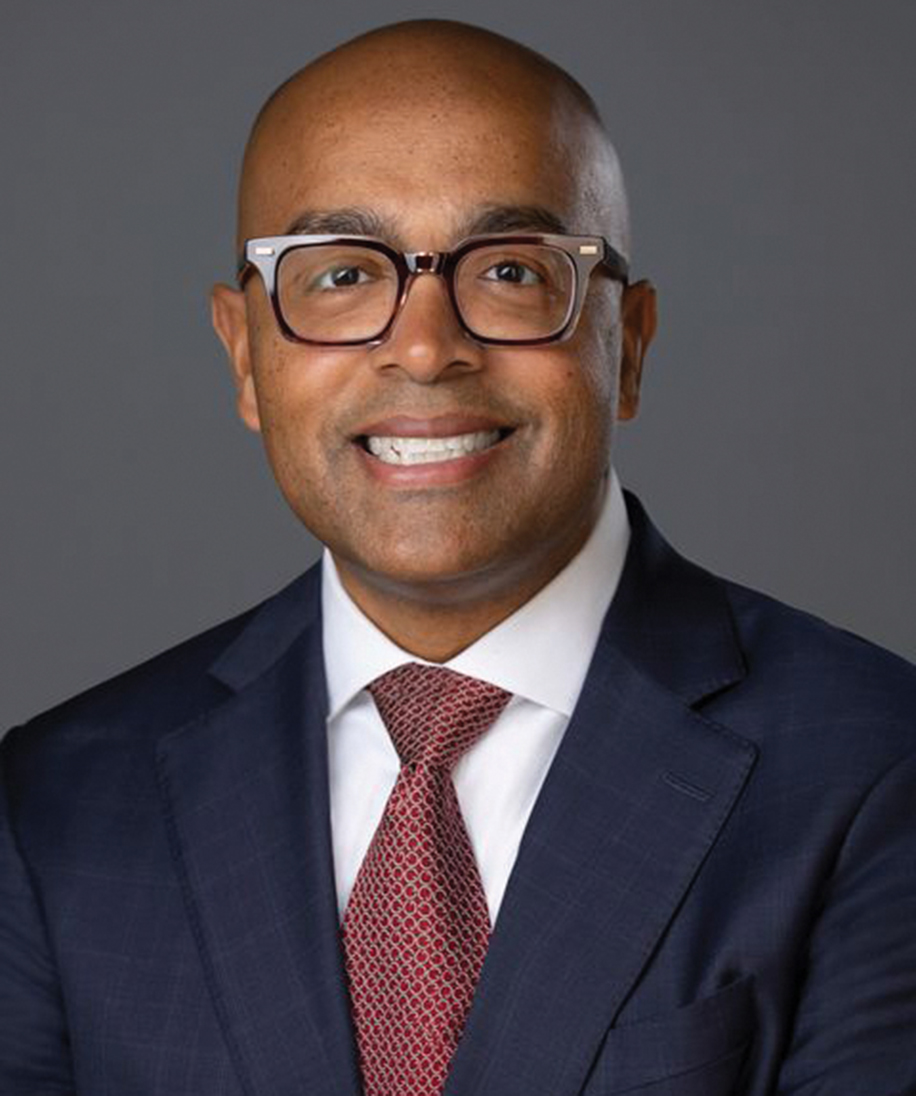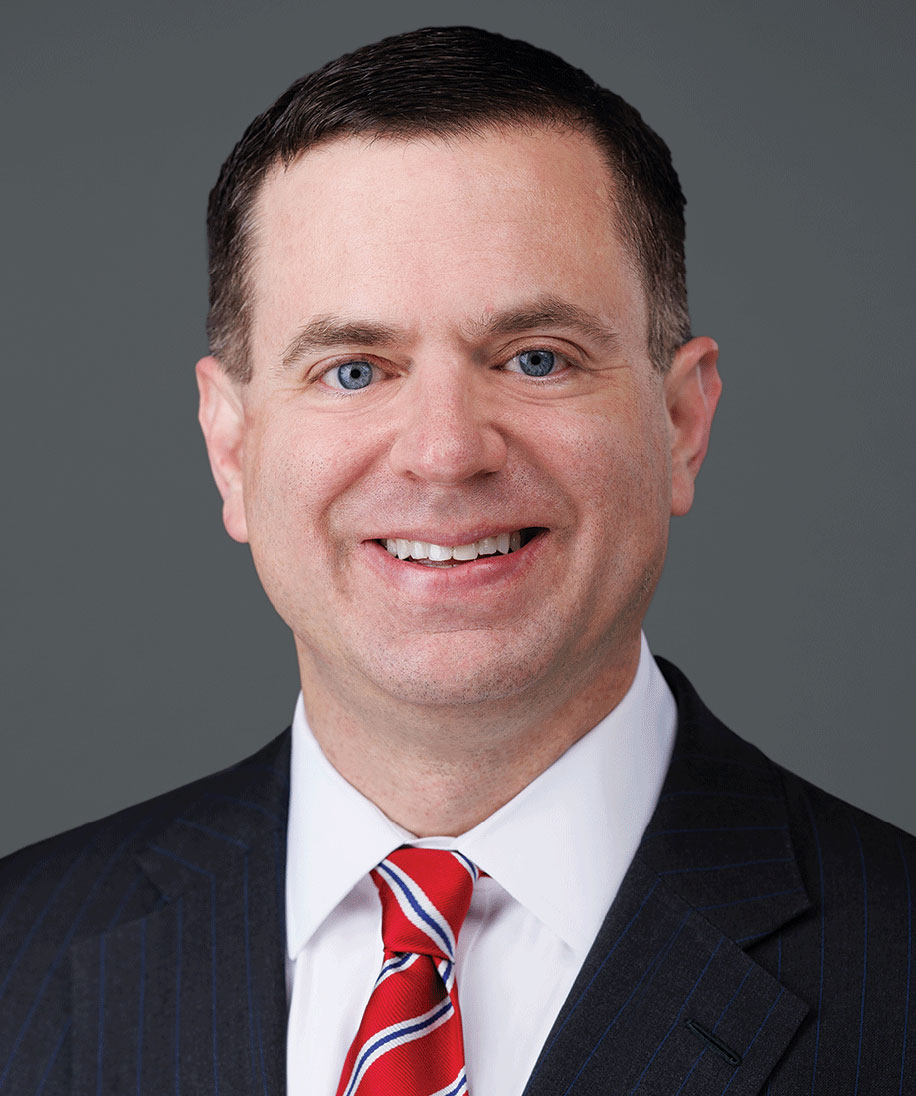Client Alert
Off to the Races: DOJ Offers New Incentives for Whistleblowers and Companies to Report Misconduct
August 08, 2024
By Kwame J. Manley,Brad Bondi,Corinne A. Lammers,Michael L. Spafford,Leo Tsao,Neil J. Schumacher
and Natasha Nicholson Gaviria
Earlier this year, as described in a previous client alert, the Department of Justice (“DOJ”) Criminal Division announced a landmark pilot program to pay monetary awards to whistleblowers (the “Program”). At that time, Deputy Attorney General (“DAG”) Lisa Monaco and Principal Deputy Assistant Attorney General (“PDAAG”) Nicole Argentieri highlighted the success of similar programs offering financial incentives at the DOJ and elsewhere and tasked the Money Laundering and Asset Recovery Section to develop a formal policy.
On August 1, 2024, the Criminal Division delivered on its promise, unveiling the details of the now-effective Program, including a website with additional information for whistleblowers and companies and formal program guidance.[1]
Significantly, the Criminal Division also amended the Voluntary Self-Disclosure Policy to offer a presumed declination if a company receives an internal report and discloses it to the DOJ within 120 days, provided the DOJ has not contacted the company before its self-disclosure. The Program also provides incentives for whistleblowers to report allegations first using a company’s internal reporting channels.
In further remarks about the Program, DAG Monaco and PDAAG Argentieri shared their expectation that the Program would cause both individual whistleblowers and companies to “rac[e] up the front steps,” leading to stronger enforcement against both individual wrongdoers and companies.[2] But they also highlighted the advantages of corporate “compliance investments” to reduce the likelihood of violations and increase the ability to detect any potential misconduct before a whistleblower reports to the DOJ.[3]
Scope of the Program
In an effort to target criminal misconduct in areas not otherwise covered by another agency’s whistleblower program, the Program is focused on potential violations of law in four subject areas: financial crime, foreign bribery, domestic bribery, and healthcare fraud.
- Financial Crimes: Combating criminal misconduct at financial institutions (such as fraud, money laundering, and obstruction or deception of regulators) was a key trigger of the Program. PDAAG Argentieri explained that existing programs such as the Securities and Exchange Commission’s (“SEC”) Whistleblower Program do not cover specific forms of misconduct identified in recent resolutions.[4] The Program allows the Criminal Division to offer potential awards for a broader array of violations, including where other civil regulators may lack a legal basis for an enforcement action.
- Foreign Bribery: When the Criminal Division announced the Program in March, there was no indication that it would expand the Program to encompass potential violations of the Foreign Corrupt Practices Act (FCPA). The SEC already administers a highly successful whistleblower program, which has resulted in the award of nearly $279 million and many other eight-figure awards for violations of the FCPA and other securities laws.
- However, the SEC has no authority to offer awards where potential misconduct occurs at companies whose securities are not traded on a U.S. market. To address this gap, the Program offers potential awards for reporting criminal violations of the FCPA by non-issuers, such as private U.S. companies and foreign companies with operations or other touchpoints in the United States.
In March, PDAAG Argentieri highlighted the Criminal Division’s intent to enforce bribery solicitations.[5] The Foreign Extortion Prevention Act (FEPA), signed in December 2023, addressed a longstanding asymmetry in the FCPA, which punished individuals and companies who paid, offered, or authorized bribes but not the officials who requested or received them. FEPA also is an important component of the Criminal Division’s renewed effort to combat kleptocracy globally.
By offering whistleblower awards for the successful seizure of assets linked to foreign corruption, the Program essentially revives the Kleptocracy Asset Recovery Initiative, which resulted in several significant asset forfeitures but expired earlier this year.[6] - Domestic Bribery: The Program offers a powerful financial incentive to encourage reporting of domestic corporate corruption. The Criminal Division has authority to prosecute offers and payments to, and requests and agreements to accept payments from, U.S. government officials under the longstanding domestic anti-bribery law.[7]
- Healthcare Fraud and Other Offenses: Finally, the Program represents a significant expansion of existing whistleblower programs in the healthcare sector. Under the False Claims Act (FCA) and related statutes, whistleblowers can receive up to 30% of civil resolutions for fraud to the detriment of federal healthcare programs such as Medicare and Medicaid.[8] The Criminal Division now offers similar incentives for information about federal healthcare offenses to the detriment of private insurers and other forms of fraud against patients and investors. The Program also includes a broad catch-all provision confirming that awards may be available for “any other federal violations involving conduct related to health care” and not already covered under the FCA.[9]
Eligibility for Awards to Individuals
General Requirements: A whistleblower who provides information that leads to a successful criminal prosecution and related asset forfeiture of at least $1 million may be eligible for 30% of the first $100 million subject to forfeiture (and a smaller percentage of forfeitures in excess of $100 million). Similar to other programs, the whistleblower must come forward voluntarily with information not already known to the DOJ and considered original—i.e., independently obtained information not subject to attorney-client privilege or received as part of a compliance or audit function, and not otherwise from an illegal or ineligible source. A whistleblower may remain anonymous if represented by counsel.
Limited Awards: Whistleblowers can collect awards based only on amounts recovered by the DOJ through criminal or civil forfeiture proceedings and as long as the recovery was “related to corporate criminal conduct” in one of the four substantive areas within the scope of the Program. Additionally, individual victims must be made whole before a whistleblower may collect an award. Because the Program allows recoveries only from asset forfeiture proceeds and not every corporate resolution includes a forfeiture action, recovery may not be possible in some cases. DOJ already uses criminal or civil forfeiture in cases against financial institutions. For this reason, at least in the short term, whistleblowers are most likely to receive an award in cases involving financial institutions.
Impact of Internal Reporting and Culpability: An individual who reports misconduct internally remains eligible for awards under the Program, provided the individual reports to the Criminal Division within 120 days of the internal report. In fact, a whistleblower who submits an internal report first (i.e., before, or at least contemporaneously, reporting under the Program) and then assists the company’s internal investigation may receive an increased award. The Criminal Division also will consider the extent to which a whistleblower assisted with the company’s investigation as a positive factor in determining the appropriate award percentage.
On the other hand, if the Criminal Division determines that the whistleblower interfered with or undermined the company’s internal investigation, it may decrease the award. The Criminal Division also will consider a whistleblower’s unreasonable delay in reporting, interference with internal compliance procedures and systems (such as making false statements to reduce the likelihood of detection), and seniority (including creating a culture of noncompliance and failing to respond to indications of misconduct) as negative factors in determining the appropriate award percentage.
Finally, a whistleblower who was involved in the alleged misconduct to some extent is not automatically ineligible to receive an award, provided the Criminal Division determines the individual was no more than a “minimal participant” as defined in the U.S. Sentencing Guidelines.[10]
Eligibility for Presumption of Declination for Companies
Over the past several years, several corporate enforcement policies expanded eligibility for a presumed declination under certain circumstances. The Criminal Division continues this trend, providing for a presumed declination if a company reports internal allegations to the Criminal Division within 120 days of receipt of those allegations—and before the Criminal Division contacts the company.
A whistleblower seeking the maximum possible award under the Program arguably now has an incentive to report internally, wait a sufficient period of time to allow the company’s internal investigation to progress (and cooperate and otherwise assist with that investigation), and then report to the Criminal Division. In turn, a company seeking the maximum possible benefit (a presumed declination) has an incentive to report to the Criminal Division immediately upon receiving the allegations or as soon as practicable thereafter. Companies uncertain about a whistleblower’s intent to report under the Program risk losing this benefit if they do not make a prompt disclosure decision or complete initial steps, such as interviewing the whistleblower where possible and attempting to corroborate preliminary facts, in a timely manner.
Relationship to Other Whistleblower Programs
With the Program, the Criminal Division joins several other federal prosecutors that have announced new incentives for whistleblowers. Earlier this year, the U.S. Attorney’s Offices for the Southern District of New York (“SDNY”) and Northern District of California (“NDCA”) announced their own pilot whistleblower programs. Please refer to our client alerts for a more fulsome analysis of the whistleblower leniency programs for SDNY and NDCA.
An individual who comes forward to these offices with original information may qualify for a non-prosecution agreement. Under the Program, if the individual has no more than limited involvement in the misconduct, the individual may avoid prosecution and receive a financial award for coming forward.
Also, the Program encourages whistleblowers to report to all appropriate regulators and agencies. The Program will have no impact on existing incentive programs offering compensation from fines and other recoveries. Therefore, in cases where a whistleblower’s information leads to multiple enforcement actions for distinct offenses, the Program may allow whistleblowers to augment their total recovery. Other programs offering financial incentives and, in most cases, anti-retaliation provisions and other protections to whistleblowers, include the following:
- SEC Whistleblower Program, which was established in 2011 and covers potential fraud, recordkeeping and internal controls issues, deception of auditors, and other types of misconduct relating to an issuer’s financial reporting and potential violations of the securities laws.
- Commodity Futures Trading Commission (“CFTC”) Whistleblower Program, which was established in 2014 and covers fraud and manipulation, recordkeeping and reporting issues, and other misconduct constituting potential violations of the Commodities Exchange Act.
- Anti-Money Laundering and Sanctions Whistleblower Program, which was established in 2021 and is administered by the Department of the Treasury’s Financial Crimes Enforcement Network (FinCEN). The AML and Sanctions Whistleblower Program covers potential violations of the Bank Secrecy Act and the various U.S. sanctions regimes.
- False Claims Act Reporting, which allows whistleblowers to join civil lawsuits as qui tam relators and receive a portion of any recovery. The False Claims Act covers fraud in connection with government programs but is most often enforced in cases involving healthcare, defense, and other government contracts.
Takeaways
- Companies should consider the areas in the scope of the Program—financial crime, foreign and domestic bribery, and healthcare fraud and misconduct—to be key enforcement priorities for the Criminal Division. Companies should expect to see continued enforcement focus in these areas.
- The effort to fill perceived gaps in the government’s existing whistleblower programs almost certainly will drive an increase in both sourced and anonymous reporting to the Criminal Division. As a comparison, in the first year after SEC announced new whistleblower provisions under the Dodd-Frank Act in 2010, SEC received 334 whistleblower tips; in 2023, SEC received 18,354 tips.[11] The Criminal Division likely will experience a similar uptick in reports despite the lesser likelihood of a comparable financial award to the whistleblower. Companies also should expect more internal and external allegations of misconduct in the four areas within the scope of the Program. The financial and healthcare sectors are particularly likely to perceive the effects of this increase.
- Companies should consider the benefits and limitations of the Program in enhancing their own compliance programs, including the following:
- Internal Reporting / Hotline: Although the Criminal Division is incentivizing potential whistleblowers to report allegations internally by making them eligible for larger awards, companies still need those would-be whistleblowers to speak up. Where appropriate, companies should consider highlighting multiple internal reporting channels to allow employees to report misconduct easily and anonymously to the company. Companies should evaluate available metrics critically to determine whether their corporate culture fosters speaking up without fear of recrimination. If the data indicates that particular countries or operations report less frequently than others or that the company lacks a robust culture of psychological safety to support speaking up, the company should consider both short- and long-term measures to build engagement and trust in internal reporting mechanisms.
- Nonretaliation and External Reporting: Similar to other whistleblower programs, companies are at risk of losing cooperation credit and other benefits if they impede anyone from communicating directly with the Criminal Division. Companies should highlight policies on anti-retaliation and ensure all policies, employment agreements, and other agreements and guidance leave no doubt that employees are always free to report to the government.
- Fostering Good Relationships with Internal Whistleblowers: Companies should reevaluate their procedures regarding interactions with internal whistleblowers. Simple measures, such as timely and consistent communication with employees and others who report misconduct and reassurance about the progress of an investigation, may dissuade them from approaching the Criminal Division prematurely.
- Corporate Culture: Companies should promote their values and commitment to legal and ethical business—at both the senior and middle management levels—to improve employees’ perceptions of the company’s compliance culture and increase their confidence in the effectiveness of the compliance program.
- Prompt Internal Investigations: To remain eligible for a presumptive declination, companies will have to evaluate allegations promptly and determine whether to report to the Criminal Division within no more than 120 days of receipt. General counsels, chief compliance officers, and others with key roles in a company’s compliance program should consider the possible impact of the Program on their businesses. If history is any guide, the theoretical possibility of a financial award may trigger a flood of new internal allegations. This may call for new procedures and resources to conduct expedited preliminary investigations where needed.
- Managing External Reporting: Given the increased risk of detection, companies should work with counsel to consider whether and when a voluntary self-disclosure is appropriate and to which agencies, preempting government notification by a whistleblower and maintaining the company’s eligibility for the benefits offered for such disclosures under multiple whistleblower regimes. Counsel also can advise on how best to navigate the increased likelihood of parallel investigations by multiple agencies.
- Testing To Evaluate Effectiveness: Companies will want to conduct appropriate testing to evaluate the effectiveness of their efforts. Building a robust plan of annual testing and measurement of key metrics can help companies assess the effectiveness of their efforts to drive a speak-up culture.
Paul Hastings will be hosting a webinar in September to discuss further observations about the landscape of government whistleblower programs and the impact on corporate compliance efforts. We will share information about this upcoming webinar shortly.
[1] U.S. Dep’t of Just., Criminal Division Corporate Whistleblower Awards Pilot Program (Aug. 1, 2024), https://www.justice.gov/criminal/criminal-division-corporate-whistleblower-awards-pilot-program.
[2] Lisa Monaco, U.S. Dep’t of Just., Deputy Attorney General Lisa Monaco Delivers Remarks on New Corporate Whistleblower Awards Pilot Program (Aug. 1, 2024), https://www.justice.gov/opa/speech/deputy-attorney-general-lisa-monaco-delivers-remarks-new-corporate-whistleblower-awards; Nicole M. Argentieri, U.S. Dep’t of Just., Principal Deputy Assistant Attorney General Nicole M. Argentieri Delivers Remarks on New Corporate Whistleblower Awards Pilot Program (Aug. 1, 2024), https://www.justice.gov/opa/speech/principal-deputy-assistant-attorney-general-nicole-m-argentieri-delivers-remarks-new.
[3] See id.
[4] U.S. Dep’t of Just., Principal Deputy Assistant Attorney General Nicole M. Argentieri Delivers Remarks on New Corporate Whistleblower Awards Pilot Program (Aug. 1, 2024), https://www.justice.gov/opa/speech/principal-deputy-assistant-attorney-general-nicole-m-argentieri-delivers-remarks-new.
[5] U.S. Dep’t of Just., Acting Assistant Attorney General Nicole M. Argentieri Delivers Keynote Speech at the American Bar Association’s 39th National Institute on White Collar Crime (Mar. 8, 2024), https://www.justice.gov/opa/speech/acting-assistant-attorney-general-nicole-m-argentieri-delivers-keynote-speech-american.
[6] U.S. Dep’t of Treas., Kleptocracy Asset Recovery Rewards Program (Jan. 1, 2024), https://home.treasury.gov/about/offices/terrorism-and-financial-intelligence/terrorist-financing-and-financial-crimes/kleptocracy-asset-recovery-rewards-program.
[7] 18 U.S.C. § 201.
[8] 31 U.S.C. § 3730.
[9] U.S. Dep’t of Just., Department of Justice Corporate Whistleblower Awards Pilot Program (Aug. 1, 2024), https://www.justice.gov/criminal/media/1362321/dl?inline.
[10] U.S. Sentencing Guidelines § 3B1.2(a), Cmt. 4 (defining “minimal participant” as one who is “plainly among the least culpable of those involved in the conduct of a group”).
[11] Secs. & Exch. Comm’n Office of the Whistleblower, Annual Report to Congress for Fiscal Year 2023 (Nov. 14, 2023), at 5, https://www.sec.gov/files/fy23-annual-report.pdf.
Contributors






Practice Areas
Investigations and White Collar Defense
SEC Enforcement Defense and Regulatory Counseling
For More Information





